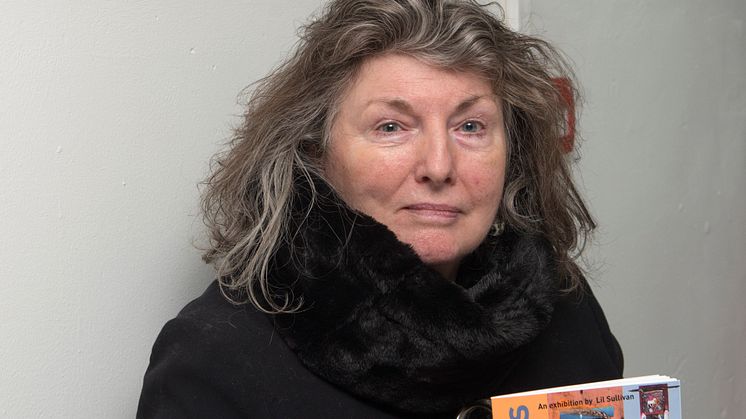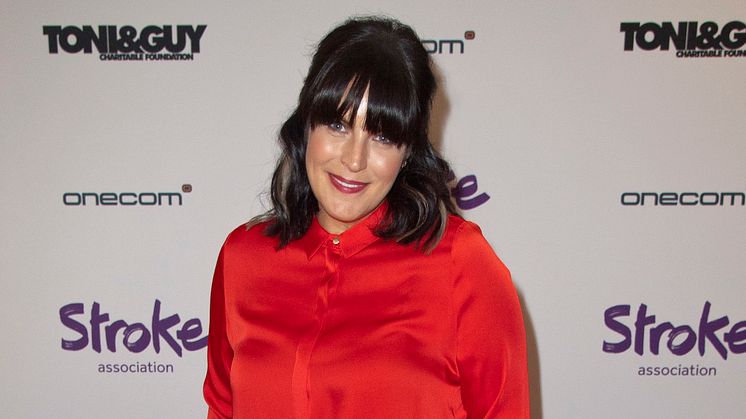
Press release -
London woman who was on the brink of death after severe stroke backs the Stroke Association’s plea for people to make one small change
A London stroke survivor who was on the brink of death after a severe stroke is backing the Stroke Association’s plea for people to make one small change to reduce their own risk of having a stroke.
Lil Sullivan, who lives in Camberwell, survived but the stroke left her with both physical and emotional problems.
The stroke damaged the part of her brain which controls communication, leaving her with speech and language difficulties, depression, weakness in her left leg and arm, and prone to fatigue.
Nine out of ten strokes are linked to lifestyle factors such as smoking or obesity and the risk could be reduced by making changes. The Stroke Association is calling for people to make one small change starting on Stroke Prevention Day, Friday 14 January.
Lil’s stroke was caused by high blood pressure. She says if she could go back in time to when she had the stroke in 2005 the change she would tell her younger self to make would be to listen to the doctor who tried to put her on medication.
“My doctor said that I should have a tablet for high blood pressure. When I said I didn’t want to have any tablets in my system she didn’t argue and I think she should have.
“Now I have to take nine different types of tablets - I have an entire pharmacy in my system,” said Lil, whose father Pa died after a stroke.
“I would say to people ‘take the one’. If your doctor says take a tablet for high blood pressure then do it. Take the tablets, please. You could have a stroke like me and I wouldn’t wish that to my worst enemy.
“Everyone should have their blood pressure checked. You don’t know that you have high blood pressure. It’s a silent killer.”
“The doctors should say to patients you should have the tablets to control your high blood pressure or else you’ll regret it. You could die.”
Lil’s stroke happened when she was at home in Brixton where was living at the time.
“The stroke came on really slowly and in then I went in kind of a coma,” said Lil, who is now aged 65. “My partner called the ambulance and I was rushed to Kings Hospital.
“I woke for a while then I was in a coma again, though I have no idea how long for. I remember I opened my eyes and I looked on my left arm and it looked wooden. That was a scary thing.
“They told me afterwards that I could have died.
“I wasn’t able to walk. All my bodily functions were gone. I had to be helped by the nurses to do everything. I wasn’t able to speak. What’s amazing is that I really didn’t understand that I wasn’t able to speak. I was trying to let people know that I hadn’t lost my intelligence.
“I thought I was speaking but people didn’t understand what I was saying. I would draw what I would want people to do for me.
“I’d draw a picture of a toilet, something as basic as that. I thought ‘Oh my goodness, what would people who weren’t able to draw do’.
“The doctors were fantastic. I would love to say thank you so much to the intensive care nurse because she really helped. She really helped me in a time of sadness. I had two or three weeks intensive work with the physios in Kings they were fantastic.
“I had physio and speech therapy. I remember they said that to my family I could learn to talk again but had to have really interesting words. They had to be big words.”
Lil spent a total of seven months in Kings – where she caught MRSI – before coming home.
But that was where he struggle to rebuild her life after her stroke really began.
Lil’s daughters Sadb and t’Ida were aged 21 and five when she had her stroke.
“Sadb was at work so t’Ida has been my carer from five years old to now. It was lovely to have her there.
“My daughters had to grow up fast and I don’t like that. It’s sad.
“I lost some friends because I wasn’t able to talk to them. All I could do was smile and wave. I was a real talker before.
“I can’t dance. I was a good dancer. It’s not nice that I can’t do what I did before. I used to walk everywhere. Now I can’t. I’ve put on a tremendous amount of weight because I can’t exercise.”
Before her stroke Lil worked as a professional artist after gaining an MA in fine art and a degree in sculpture.
While she has been unable return to work full time, her art has inspired her recovery.
“If you have a stroke you get really tired so I couldn’t be an art teacher any longer. I did lots of voluntary work in my daughter’s schools and other places.
“I was the curator of an art show at the Morley Gallery in Lambeth with the proceeds 50-50 for the artist and for the Stroke Association which had helped me.”
With support from the Stroke Association, Lil was a founder of the London Stroke Choir, which is open to stroke survivors, anyone with other brain injuries and carers from across the capital. The choir has been dormant since the start of the pandemic and Lil is now raising funds to restart it.
To help with this, she recently curated an exhibition of her work, called Stations, at Brixton Wings.
Speech and singing are controlled by different parts of the brain and survivors with aphasia often find that they can still enjoy singing.
“I’m singer song writer as well as a fine artist,” said Lil. “With the flow of singing you have no problem.
“The stroke choir is called Out of the Blue because stroke comes out of the blue. Life goes on. Yes, you’ve had a stroke but you’re just changing direction.
“I’m still doing my artwork and still doing exhibitions and I’m so glad I’ve got friends that can help me do that.”
Anyone interested in joining – or donating to – the London Stroke Choir can contact Lil on 07488 329161.
Topics
Categories
- Stroke strikes every five minutes in the UK and it changes lives in an instant.
- The Stroke Association is a charity working across the UK to support people to rebuild their lives after stroke. We believe that everyone deserves to live the best life they can after stroke. From local support services and groups, to online information and support, anyone affected by stroke can visit stroke.org.uk or call our dedicated Stroke Helpline on 0303 3033 100 to find out about support available locally.
- Our specialist support, research and campaigning are only possible with the courage and determination of the stroke community and the generosity of our supporters. With more donations and support, we can help rebuild even more lives.
- You can follow us on Twitter, Facebook and Instagram.


